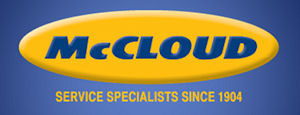
In the July issue of PMP magazine you’ll find my “RoadTrip Roundup” of South Elgin, Ill.-based McCloud Services’ annual Pest Invasion event. It took place in late April — and while we were able to include many of the highlights, here are just a few more:
- In a panel discussion on the role of exclusion in food safety, Bayer’s Joe Barile discussed the multi-faceted value of pest-proofing for PMPs focused on integrated pest management (IPM). Cornell University extension educator Dr. Matt Frye explained that while there is still a lot of research to be done on the best rodent exclusion methods, basic sealing can and should be done regularly. Dave Colbert, Global Materials Technologies, discussed pest-proofing in grocery stores and identified some of the markets that are lacking but need good pest-proofing, such as museums, schools and medical facilities. Bird Barrier America’s Ray Olschewski focused his segment on using exclusion for urban bird control. Wheeler joined the panel to answer questions that were submitted earlier, as well as questions from the audience. The panel made recommendations for choosing a sealant, how light installation affects pest management and personnel safety, and vegetation management.
- A presentation by Dr. Hal King, Public Health Innovations, called “Active Managerial Control: Implementing Food Safety Management Systems in a Food Retail Business,” focused on the need for systematic procedures in protecting consumers from foodborne illness outbreaks in restaurants. Dr. King shared that proper implementation starts with a commitment from the top down that produces systems that are specifically trained upon in a facility with food flow that supports the systems that were designed. Verification and self-assessment is a vital part of the process, allowing managers to identify gaps in the system and increase training to ensure proper execution of the system.
- The Illinois Institute of Technology’s Dr. Robert Brackett emphasized the need for a food safety culture in his talk, “The Role of Sanitation in Preventative Food Safety Programs.” The lack of a food safety culture leads to red flags for auditing bodies, resulting in them checking and scrutinizing the facility more often than they may have otherwise, he said. The culture is the result of food safety behavior based on shared values held by all employees of the company. Employees of a company with a food safety culture actively try to find food safety issues, as opposed to avoiding them or running into them when they become a problem. A lack of sanitation preventive controls results in pathogens transferred from cross-contamination, exposure to pathogens in the environment, or food allergen cross-contamination. Strict documentation, training, and execution of sanitation preventive controls are essential to keeping the population safe, a population that is living longer and therefore susceptible to foodborne illnesses.
If you’re interesting in learning more and/or attending the 2017 event, please visit McCloudServices.com.
Contributor Jessica Huebner is a Milwaukee-based marketing specialist and can be reached at jessica@reputationpartners.com.
Leave A Comment